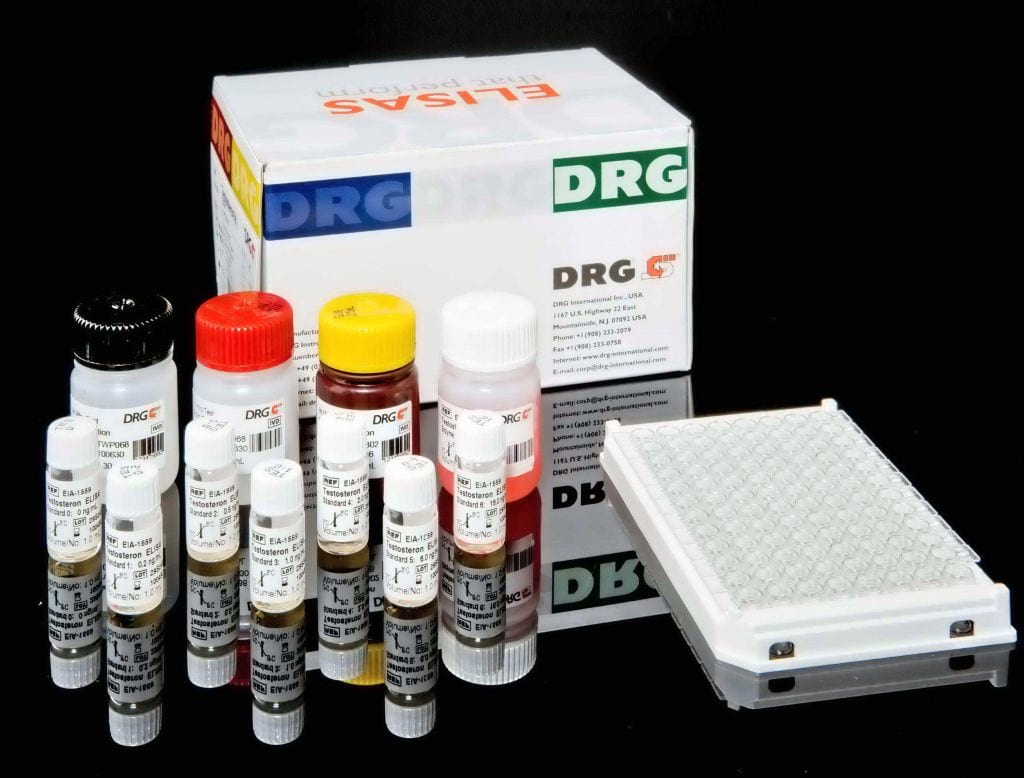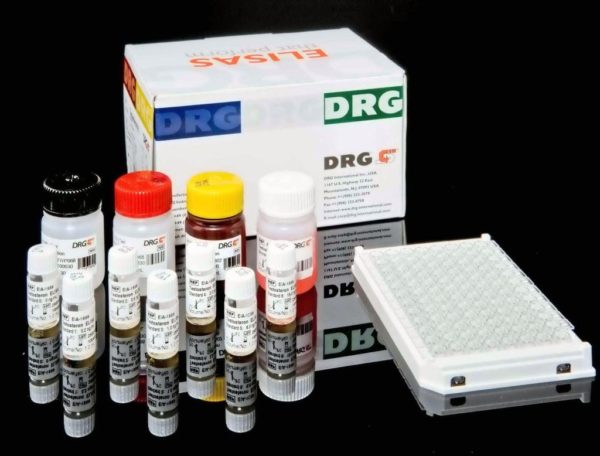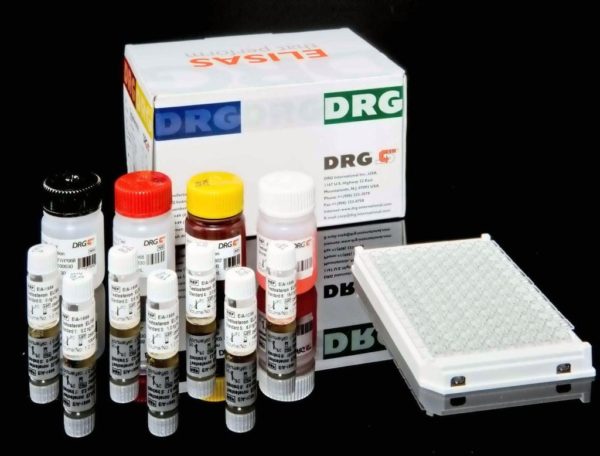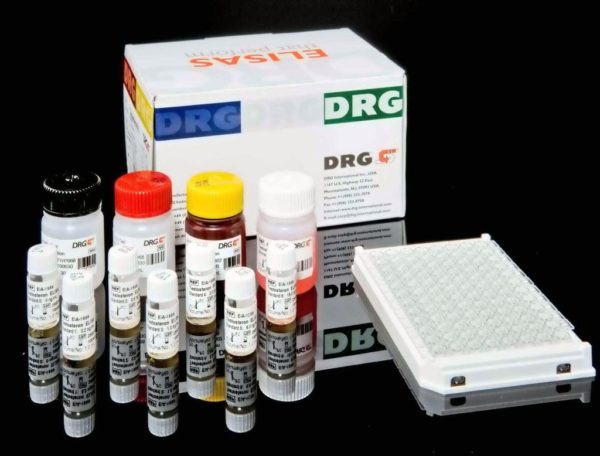Description
PLEASE NOTE: This product contains 350 96-well Microtiter Plates.
The DRG Cytomegaly Virus (CMV) IgG Enzyme Immunoassay Kit provides materials for the quantitative and qualitative determination of IgG-class antibodies to Cytomegaly Virus (CMV) in human serum and plasma.
This assay is intended for in vitro diagnostic use only.
Cytomegalovirus (CMV) is a member of the herpesvirus group (Betasubfamily, DNA virus of 150-200 nm). These viruses share a characteristic ability to remain dormant within the body over a long period. Initial CMV infection, which may have few symptoms, is always followed by a prolonged, inapparent infection during which the virus resides in cells without causing detectable damage or clinical illness. Severe impairment of the body«s immune system by medication or disease consistently reactivates the virus from the latent or
dormant state. CMV is found universally throughout all geographic locations and socioeconomic groups, and infects between 50% and 85% of adults. CMV infection is more widespread in developing countries and in areas of lower socioeconomic conditions. For the vast majority of people, CMV infection is not a serious problem, but it is to certain high-risk groups: the unborn baby during pregnancy, people who work with children, and immunocompromised persons, such as organ transplant recipients and persons infected with HIV. The presence of virus resp. infection may be identified by Microscopy, PCR, Serology: CBR and detection of antibodies by ELISA. IgM antibodies are the first to be produced by the body in response to a CMV infection. They are present in most individuals within a week or two after the initial exposure. IgM antibody production rises for a short time period and then declines. After several months, the level of CMV IgM antibody usually falls below detectable levels. Additional IgM antibodies are produced when latent CMV is reactivated. IgG antibodies are produced by the body several weeks after the initial CMV infection and provide protection from primary infections. Levels of IgG rise during the active infection, then stabilize as the CMV infection resolves and the virus becomes inactive. After a person has been exposed to CMV, he or she will have some measurable amount of CMV IgG antibody in their blood for the rest of their life. CMV IgG antibody testing can be used, along with IgM testing, to help confirm the presence of a recent or previous CMV infection.
The DRG Cytomegaly Virus (CMV) IgG ELISA Kit is a solid phase enzyme-linked immunosorbent assay (ELISA). Microtiter wells as a solid phase are coated with inactivated grade 2 Cytomegalovirus (CMV) antigen (strain AD-169). Diluted patient specimens and ready-for-use controls are pipetted into these wells. During incubation Cytomegaly Virus (CMV)-specific antibodies of positive specimens and controls are bound to the immobilized antigens. After a washing step to remove unbound sample and control material horseradish peroxidase conjugated anti-human IgG antibodies are dispensed into the wells. During a second incubation this anti-IgG conjugate binds specifically to IgG antibodies resulting in the formation of enzyme-linked immune complexes. After a second washing step to remove unbound conjugate the immune complexes formed (in case of positive results) are detected by incubation with TMB substrate and development of a blue color. The blue color turns into yellow by stopping the enzymatic indicator reaction with sulfuric acid. The intensity of this color is directly proportional to the amount of Cytomegaly Virus (CMV)-specific IgG antibody in the patient specimen. Absorbance at 450 nm is read using an ELISA microtiter plate reader.




